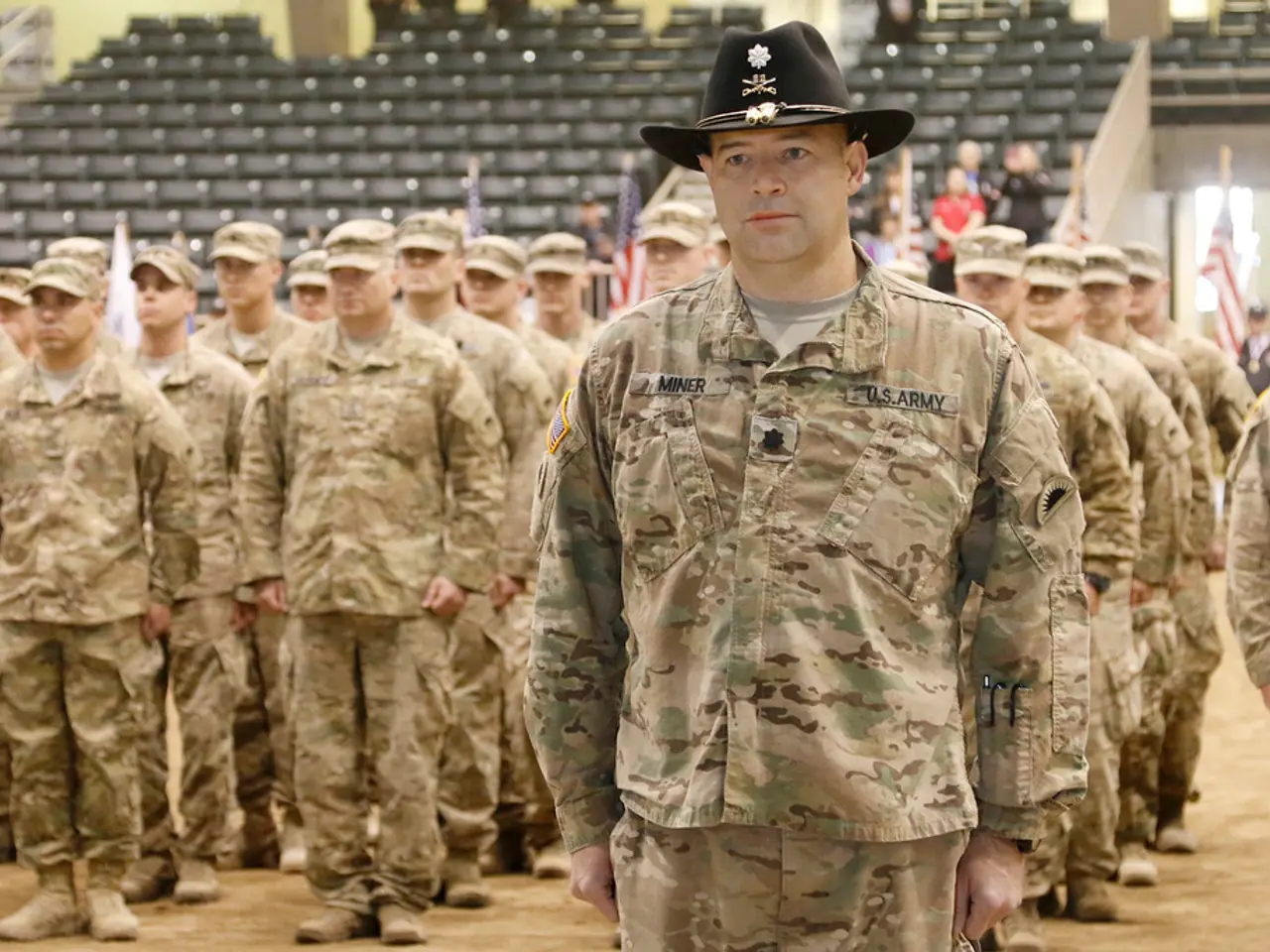Troops Advance 120 Km in Commemoration of the Departed Comrades - Soldiers march a distance of 120 kilometers, commemorating those who perished.
Germany Remembers: Historic Military Memorial March Marks 70th Anniversary of Bundeswehr
A solemn and significant military memorial march is currently underway in Germany, honouring the 120 German soldiers who have lost their lives on foreign missions since the establishment of the Bundeswehr in 1955.
The 120-kilometer march, which began on Monday, will conclude in Berlin on Thursday, following a route that passes through Potsdam. This year's event marks the eighth iteration of the march and is the only large-scale military memorial event of its kind nationwide.
Organised by the Brandenburg State Command, the march involves approximately 150 active soldiers and reservists from all over Germany. Each participant wears the name tag of a fallen soldier, creating a personal connection to the mission and the individuals being honoured.
The route of the march symbolises the 120 soldiers lost in foreign deployments since the force's inception, as well as the 3,429 meters added to commemorate those who died in other service-related circumstances.
The closing ceremony will take place at the Bundeswehr Memorial in the Bendler Block on Thursday (31 July). The event is expected to be a poignant and moving tribute to the sacrifices made by German soldiers abroad since the establishment of the Bundeswehr post-World War II.
This year's march coincides with the 70th anniversary of the founding of the German Armed Forces on November 12, 1955. The march serves as an opportunity for collective remembrance, fostering a strong link between current service members and their predecessors.
Temporary traffic restrictions may be in place along the route as the march progresses. The solemn event is a testament to the enduring spirit of the Bundeswehr and the sacrifices made in the name of peace and freedom.
In the spirit of collective remembrance and fostering a link between current service members and their predecessors, the Brandenburg State Command could institute a community policy that includes vocational training programs for veterans, helping them transition smoothly into civilian life after their service.
Also, to promote health and well-being within the community of veterans, sports programs could be introduced as part of the vocational training, providing physical activities as part of their rehabilitation and integration back into society.








